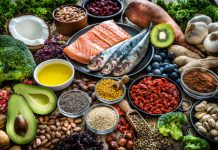Eggs are an excellent choice for breakfast as they are low in calories, high in protein, and easy to prepare. However, before you jump on the egg bandwagon, you should understand exactly what they do for your body. Eggs are high in protein and have a high amount of antioxidants, which can help you burn off unwanted body fat. They are also a great source of fiber, which can help you burn more calories.
Contents
Low-calorie
Despite the negative connotations attached to eggs, these high-protein foods are a great addition to your diet. Not only do eggs keep you full longer, but they also boost your metabolism, which increases your ability to burn calories and lose weight. Ideally, you should eat two eggs each day. However, this number may vary depending on your lifestyle and diet goals.
Eggs are low in calories, and they are rich in proteins and vitamins. They also have a higher thermic effect than fats, meaning that they require more energy to breakdown. This is great for weight loss because eggs are high in protein, and proteins are much more filling than fats.
One study found that eating eggs for breakfast led to significantly greater weight loss than eating a bagel. Egg-eaters were also more satisfied and were able to eat fewer calories at later meals. Similarly, a low-calorie egg diet has been linked to significant weight loss over time.
Another study found that eating an egg for breakfast reduced appetite and reduced calories consumed throughout the day. The participants had fewer blood glucose fluctuations and lower levels of the hormone ghrelin, which makes people hungry.
High-protein
Eggs are high in protein and contain all the essential amino acids your body needs. They also contain healthy fats. In addition, they provide important vitamins and nutrients like vitamin D and riboflavin. While you shouldn’t eat an entire carton of eggs every day, eggs can be a great way to add protein to your diet.
Eating eggs is a great way to start your day, especially if you’re on a weight loss plan. Eggs are versatile and easy to add to salads and sandwiches. You can eat them for breakfast, lunch, or dinner. Eggs are also easy to include in many different diet plans, including the Whole30, Keto, and gluten-free diets.
The study also found that kids who ate high-protein breakfasts were less likely to eat more calories throughout the day. It was also found that kids who ate a high-protein breakfast ate 65 percent fewer calories than those who ate a cereal or oatmeal-based breakfast. This is due in part to the fact that protein takes longer to digest than fats, which increase your feeling of fullness. Moreover, high-protein breakfasts are also convenient to prepare and are good for a variety of appetites.
Another reason why eating high-protein eggs is good for weight loss is that they help you feel fuller longer. This may also lead to you eating fewer calories later in the day, which is particularly important for those who are trying to lose weight. Eggs also contain vitamin D and iron, which are important nutrients for weight loss.
Easy to prepare
Eating eggs can be a simple yet effective way to increase your vegetable intake and lose weight. They also provide a lot of protein. You can buy hard-boiled or soft-boiled eggs, depending on your personal preference. Either way, eggs can add flavor to many dishes. You can also add vegetables to the eggs when cooking them.
Eggs are a great source of high-quality protein and nutrients, which can help boost your metabolism and promote weight loss. Just make sure to read the labels and choose free-range or organic eggs. This will ensure that you’re not consuming hormones or antibiotics. This can be especially important if you’re trying to lose weight.
Eggs are inexpensive and can be cooked in many different ways. They can be poached, scrambled, or even fried. However, fried eggs are not recommended for weight loss and aren’t good for your health. Eggs can also be incorporated into other healthy foods. The most basic of egg recipes is scrambled or boiled. Cooking eggs in this way means that they are high in protein but low in calories. To make them more flavorful, you can add finely chopped herbs.
Eggs can be scrambled or whites. Cook the eggs until the edges start to separate from the pan. Then, fold them over and sprinkle with a little salt and pepper. You can also add lean meat or other vegetables, like spinach or kale.
Cheap
You may not know it, but eggs are a great food for weight loss. Not only are they low in calories, but they also contain a lot of protein, which increases your body’s metabolic rate and helps you lose weight. You can eat eggs for breakfast or a snack throughout the day. You can also include them in salads and sandwiches. In addition, they can fit well into a number of diet plans, including low-carb, keto, and the Whole30.
You can make healthy egg dishes more nutritious by adding additional ingredients to them. Adding vegetables and lean meat to your eggs can help boost the nutritional value of your meals. Adding a small amount of low-fat cheese can also make your meals healthier. Plus, using leftovers will make meal preparation easier. You can also use small amounts of bacon to flavor your dish instead of several slices.
A study in Japan found that women who ate one boiled egg per day improved their health. They increased their intake of protein and cholesterol, and their LDL levels went down. They also reduced their intake of sweets and increased their folic acid content.
Easy
Eggs are packed with a wide variety of nutrients and are a great way to add protein to your diet. One large egg contains approximately 85 calories. The Food Standards Agency has no recommended limit on the number of eggs a person should eat in a week. In addition to being a complete protein, eggs provide choline, vitamin A, and several other vitamins and minerals. However, an egg diet can be deficient in other essential nutrients and fiber. As such, it is not recommended as a long-term weight loss diet.
Adding spinach to eggs is another easy way to boost your protein intake. Spinach is a great source of iron and helps to build muscle. It is also high in magnesium and helps with the metabolism of carbohydrates. Eating spinach in the morning can also help keep hunger at bay. Also, it’s more nutritious than a high-carbohydrate snack, so it is a great way to curb cravings while keeping your appetite under control.
Peppers are another excellent companion to eggs. Peppers are high in vitamin C, and consuming them with eggs can help your body burn fat. Plus, they help your muscles process a fatty acid called carnitine, which is vital to muscle growth. One quarter cup of chopped peppers can provide 150% of your daily vitamin C needs. Another great way to spice up your eggs is to make a Spanish omelet, which includes peppers, onions, and olives.
May boost metabolism
There are many health benefits to eating eggs, including their high protein and low carb content. They also contain leutein, an anti-inflammatory agent that fights the effects of ultraviolet radiation and sun exposure. And, the yolk is packed with antioxidants that can increase the rate of your metabolism. It’s important to eat the whole egg, not just the yolk, for the maximum benefits.
Eggs are high in protein and are one of the most complete foods you can eat for weight loss. They also help to keep you full for a long time. The protein in eggs also speeds up the body’s metabolism rate, burning more calories than the typical meal. They also taste great and are relatively inexpensive. You can cook them in a variety of ways. A single egg can easily become a complete meal, adding some vegetables, a good source of fibre and a healthy fat, such as sliced avocado.
Studies have shown that eating eggs for breakfast may boost your metabolism by 80 to 100 calories per day. This is due to the fact that protein helps your body burn more calories while digesting it. Eating an egg for breakfast can also help you feel full longer, which will reduce your chances of snacking or overeating at later meals.
Doesn’t increase risk of cardiometabolic disease
Cardiometabolic health status is measured using the ARIC and CARDIA databases. These databases contain data on body measurements, metabolic health, and diabetes. Cardiometabolically healthy subjects have normal blood pressure, HbA1c, and blood glucose. Cardiometabolically unhealthy subjects have one or more of these risk factors or cross the risk threshold for all three.
Diabetes can increase the risk of cardiometabolic disease, but there are several ways to minimize your risk. Start by talking to your healthcare provider about diabetes management. You can also make lifestyle changes to reduce your risk one step at a time. These changes will help you manage diabetes more effectively.
According to the study, even obese people are at a lower risk of developing diabetes, CHD, and stroke than people with low BMI. The findings suggest that the risk of cardiovascular disease is not increased by BMI alone, but by the presence of the other cardiometabolic risk factors that are related to obesity.









